- Home
- Rosanne Hawke
Zenna Dare Page 9
Zenna Dare Read online
Page 9
But he lied, for I was the one who was lured, not he.
Jenefer
Gweniver is unfolding before my eyes. How difficult it must have been after being part of all that cultural scene in Cornwall — the music, a castle on a mountain in the sea — and all of a sudden she lands in Woop Woop. Man, do I know how that feels! Yet she must have got used to it somehow. She married Redvers, had piles of kids. But something doesn’t ring true. How does she get to marry Redvers if she’s so set on not marrying, and why couldn’t she anyway? When I’m in my room like this, sitting in the window, I can almost see her shadow here. Feel her sadness, her longing for something that I don’t understand.
Zenna Dare is even more elusive — she’s my enigmatic unsung tune — and it’s because of her that Caleb and I take a trip to the city. It’s the first time I’ve been since we moved to Kapunda. Caleb comes round the back to pick me up. Because it’s Saturday, the kids are there, still eating Weet-Bix and bananas. Hamilton smiles up at him through the bleary puffiness of his face. Steffi’s watching him closely. Wonder if he’s told her about Sher Khan getting out last night. Kate looks baleful — it’s the only word for it. Not just the woeful meaning either. The calculated malice in her expression at times can be alarming. Guess she wants to come with us, but you can’t have your little sister with you all the time. I soon forget about it as we walk out to the gate.
‘The sheik said I could have the ute today.’
‘The sheik?’ Whoever he is, he’s generous with his ute; maybe it’s a spare.
Caleb grins. ‘That’s what everyone calls the guy who owns the camel farm. Even wears the baggy Afghan clothes that the original cameleers used to wear.’
‘This I have to see,’ I murmur. But not today. I look up at Caleb. He’s teasing, ‘Next week?’ he says and I know it’s another date. I’m going to have to learn to drive. Dad always said we’d wait until we got to Kapunda. ‘It’ll be easier in the country,’ he said.
We drive to the Gawler railway station and catch the train. At the beginning of the year I said Kapunda was hicksville — driving to Gawler to get the train! Water-bag trip! — and I almost feel traitorous when I remember my thoughts on the way up in January. Now I love having the extra time to watch Caleb as he talks; his hands on the wheel as they rise and fall. They talk too. Especially when he sings along to the radio.
The State Library’s not far up North Terrace but I couldn’t care how far anything is anymore. When we pass the museum, Caleb tells me his mum goes there a lot.
‘Why the museum?’ And I wonder how far I can joke about his family — 60,000 years of genealogy held in the museum?
‘They’ve got a good records section where Nungas can come and work out who their mobs were.’
I think of the excitement I feel, just knowing I‘ll find out a bit more today. ‘How much has your mum found?’
‘That we’re of the Ngadjuri mob. We are the walpa juri, the peppermint gum people. They lived near the Light River, even further up and way out east too, before the Goonyas came.’ He glances at me as he says this and I think about before the Goonyas came. So much still that I’m not sure of and I don’t realise it until moments like these. Then he grins. One of his grins can dispel any tension. ‘Unfortunately, only the bad eggs got their name in print, so it’s hard to trace anyone.’
In the library I find the same thing. Even though Zenna Dare may have been a public figure she’s extremely difficult to find. There’s nothing at all in the online catalogue. Even when I plug in ‘Nineteenth century theatre in Cornwall’ there’s nothing. I score with ‘British Theatre’ though and write down the Dewey numbers. Caleb’s brought a book to read in case
he gets bored. I grin as my eyes scale the stacks of books — looks like millions and he brings another one? He reckons there won’t be any fantasy novels in here and I can see his point. I leave him in a comfy chair while I start searching. Blue stacks, red stacks and even more in storage. I find the shelf of British Theatre and check the indexes of all the most interesting ones but no Zenna Dare. Tons of stuff on theatres in Drury Lane and Covent Garden. Nothing that I think I need.
Steffi would tell me at this point to thinking laterally. And I try. If Zenna Dare was in Cinderella, does that make her a singer? Opera. Of course. Back to the catalogue and I take down numbers for English opera. Nothing for Cornwall, as usual. Isn’t anybody writing about Cornwall? I walk past Caleb on the way back to the stacks — he’s furtively eating a KitKat and grins. He points to his watch; he’s getting hungry. He promised me lunch but I stay strong, smile and keep walking.
At the 790s there are hundreds of books on music. I find some opera ones; pull out one called ‘British Opera’. But there is no Zenna Dare in the index. With a sinking feeling I realise they’re not going to give space to someone who sang as the ugly sister in Cinderella. I’m expecting too much. Then I see this old book. There’s no dust cover, just pale green cloth. It reminds me of the books in the Gawler library. I blow on it before I look inside: 1950. No one’s read it since then either, by the look of it. It’s called Great Singers of English Opera. Mostly it’s all about people who spent their whole lives on the stage, and there’s no index! I groan. I can’t stand books with no indexes, and before I knew about Zenna Dare I couldn’t have cared less.
I flip through the chapters, trying to get the date right — mid nineteenth century — and all of a sudden I see it. The ‘Z’ is hard to miss. She’s mentioned as a member of the cast of an opera in the Theatre Royal, Drury Lane, London, in November 1846. The Bohemian Girl. That’s all it says. I keep it open to copy. My knowledge of opera is zilch. Who was the Bohemian girl? I’m glancing over the whole shelf of books now — this is too big — like looking for the back of an earring on the beach. I see a book called The Stories of Opera and I look up The Bohemian Girl in the contents. It’s there: the whole story about how this girl called Arline is kidnapped as a child and brought up as a gypsy and she falls in love with a gypsy guy. But apparently it wasn’t cool to fall in love with gypsies in those days. Nothing much changes, eh? It all turns out okay in the end. The guy is really a prince and she can marry him after all. I’ve typed some notes on my iPad and am just about to take the books to the photocopier when Caleb finds me.
‘I’ve finished my book,’ he says in a loud stage whisper. ‘I’ll go and check out a music shop. I shall return.’ He’s funny and I nod happily at him. It’s my cue to offer to come but I don’t. He blows me a kiss as he turns to look back at me and I almost forget what I was going to do next. Almost.
It’s when I’m waiting in line for the photocopier, reading the bit about Zenna Dare being in the opera, that I see this sentence: Reviews of the day raved over the opening performance; how the debut appearance of Mr. Drew’s new student, Miss Dare, charmed the audience.
Reviews! Newspapers. This was London. Was there such a thing as a London Times? After an age in the copy line, I go to the reference desk and ask. An unsmiling librarian gives me access to a computer and I find out for myself. It takes a while. I end up with the history of the Tower of London and all sorts of rubbish I don’t need to know until I finally hit on a site that gives the names of the London newspapers through the ages. I find one that fits the dates: London Times, and a magazine called Illustrated London News. Bingo! I head towards the newspaper section. I’m so glad Caleb’s happy in a music shop somewhere — this will take forever.
The library assistant has to show me how to use the microfiche viewer for the London Times and I wonder why this hasn’t been put online. I scroll down the index. Nothing. The Illustrated London News is in the magazine section. Crossing my fingers, I start sliding down mountains of columns. In those days they didn’t put articles where you think they would be — like it doesn’t help to look up at the back or in an arts section. At least I know which month and year to look in. I’m up to the 27th of November before I find it. And I pri
nt it out. This time I’m sure it’s Zenna. Her first name is even mentioned.
There’s just one more thing I have to do. Caleb hasn’t come back yet so I go into Mortlock Library, the part of the State Library that stores local material. This place is even more awesome than the old library buildings at Gawler and Kapunda. This is huge, ancient dark wood, and floors within floors of books like never-ending reflecting mirrors. I stand still, watching a librarian climb dark brown stairs with carved rails, a stack of papers in her arms, and I suddenly realise something: this is what I want to do. Puzzles. Piecing together people’s lives. I’ve never known before. Whenever old aunts at family dinners would ask what I’m going to be when I grow up (pul-lease), I would always be so embarrassed. I never knew what to say.
I ask at the desk how to check arrivals into South Australia and get shown this archaic card system and the famous green books. Shipping and passenger lists are pointed out to me and I hope Caleb doesn’t come back too soon. There’s no Zenna Dare on the little cards and without that info I can’t look up the shipping or passenger lists. I find Gweniver’s arrival on the cards under ‘Rundle’ though; the Tremaynes too. I find the corresponding passenger list and there in faded light ink in even messier writing than Gweniver’s is Redvers’ name: Redvers Tremayne, 15 yrs. A Harry Tremayne too, five years. There’s a scrawl next to his name and I just make it out: died at sea. I stand there transfixed, staring at this huge page that some ship’s purser had written on, over one and a half centuries ago. Died at sea. I can feel the sting behind my eyes and the page blurs slightly. Why should this affect me? I never knew them. Yet I know what Caleb would say.
I shut the book and try Gweniver’s passenger list. She’s there. But I can’t find Zenna Dare anywhere. She didn’t come with Gweniver or never came at all. Maybe my elusive tune can start playing in earnest at last. I approach the desk from the side and bravely ask about it.
‘As far as can be known then, no one of the name of Zenna Dare has entered the state. The cards even show if someone came from interstate,’ the librarian says. It feels as if she’s looking down her nose at me. I wonder if librarians ever feel like breaking out of that disciplined reserve and saying Duh.
‘She never came?’ It must be my tone of voice for the librarian sounds a little kinder. ‘Are you sure it’s her real name?’
I have to close my eyes a second, hope stirring like a laser probing my mind. ‘What do you mean?’
‘Maybe she married just before she came?’
I calm down again. Haven’t thought of that one. ‘I don’t know. How can I check?’
I’m told about the International Genealogical Index. ‘It’s on the web.’ And I start checking marriages. There is no Zenna Dare, either married or born. Armed with this information I approach the desk for further orders.
‘Not all parishes are listed, of course. It’s possible she slipped through. Some records were burnt in fires.’
I think I must be tired. This is not as much fun when you keep drawing blanks. According to Mortlock Library, Zenna Dare never existed, yet she’s on a playbill in the box (well, Miss Dare is). She’s been an ugly sister, and she sang in The Bohemian Girl. I have the review to prove it.
I sit down, defeated, in the foyer and wait for Caleb. Was it her real name? Those words keep ricocheting into my head. And I let myself listen to the opening bars of Zenna’s tune at last: my alternative theory. When you think about it, the name doesn’t sound real. What sort of name is Zenna for an Cornish girl in the 1840s? But I need more clues to be sure. I get out the review and read it through.
Illustrated London News
The Bohemian Girl
Drury Lane
Nov. 27th 1846
“The Bohemian Girl” opened at Drury Lane last night and if the delight of the audience can be used as an indication, the opera should have a successful season. It has marked the debut of a Miss Zenna Dare, the new protegée of Mr. Richard Drew. The question on everyone’s lips is: where has Mr. Drew found this songbird? She does not act badly and there are possibly better singers but Miss Dare’s charm consists in making one forget them all. What she offers is so completely hers, so harmoniously fresh and lovable that one allows oneself to be captured and to embrace it with pleasure.
Mr. Richard Drew consented to take part in the performance as the gypsy lover and also played the violin with great intricacy of fingering. The company gasped at the dexterity he showed playing Balfe’s haunting gypsy tunes and the sweetness of tone rendered his performance a treat of the most superior kind.
Miss Dare’s sweet and mellow voice blended with Mr. Drew’s baritone, making one’s imagination fly right into the drama. The sense of intimacy between the two singers in the forest glade almost made one feel an intruder on a private love scene.
L.K.H
Richard Drew! Gweniver has written of a Mr Drew. Lady St Aubyn called him Richard. He must be the same. Is this proof? Dare I think it at last: was Gweniver actually Zenna Dare? A stage name? Was she that good? Her journal just sounded like she was having singing lessons and then singing in taverns and special song and supper rooms in Cornwall. But London? It could fit; she did say Mr Drew was thinking of it and it was her dream. Maybe she managed to achieve it after all. Though, in the Cinderella piece I printed off the web, there was another student of Mr Drew’s, a Miss Ginny Rivers. G.R. for Gweniver Rundle — wouldn’t that be more likely?
And maybe Zenna Dare was her friend — after all, they sang together. If so, who was Zenna Dare?
I don’t get a chance to dwell on it just then for Caleb suddenly appears.
‘Lunch?’ I don’t know how he can still be in a good mood after I’ve made him wait so long. It’s almost three. Caleb takes me across the road to the Blue Lemon. I want to pay but he tells me he has more money than I do at the moment. That’s probably true, so I just remember it’ll be my turn next time. I choose a chicken, avocado and cream cheese baguette. He has a hot BBQ one. We eat them out in the street at a table with a red-striped umbrella that reminds me of a postcard I’ve seen of Paris.
Just then I get the proverbial shock of my life. ‘Hi, Jenefer!’ It’s Amy, Sokha, Ben Walker (would you believe), and another guy I don’t know. I see Amy’s glance take all of Caleb in. ‘We’ve just been to the movies,’ and they tell us what it was about. I suggest that they join us but it’s Ben who says they have to keep moving. He’s got a weird look on his face; I’m surprised he doesn’t hide what he’s thinking more carefully — I can hear it loud and clear and no doubt Caleb can too. This is who you get to go out with in the sticks? You poor girl and you could have had me, if you’d stayed. Even Sokha has little to say when I introduce Caleb. Guess she’s remembering how we talked about the drunks at Victoria Square and look at me now. I can tell what Amy’s thinking too for she looks back at Ben after she glances at Caleb — like what sort of comparison is there? Blond, cool Ben and an ‘Abo’ from the back of beyond? It unnerves me and for two reasons: one, that I would have liked them to be happy for me, and two, that’s just what I would have thought a few months ago too.
After they move on, Caleb and I just sit quietly eating for a while. My baguette doesn’t taste half as good as it did before. Finally Caleb says, ‘They your friends, eh?’
I don’t say anything for the confusion has set in. I know I don’t fit into Kapunda yet, although I have fun with Caleb, but now I don’t fit with my old friends either. Have I changed that much in a few months? And why couldn’t they see that if I liked Caleb he must be okay? Why did they see that he was a Nunga first? And look at him as though his skin being darker means it’s thicker too? It’s Caleb who tries to put me at ease when it’s me who should be apologising to him. ‘Don’t worry about it.’ He sounds weary, like he’s used to ignorant reactions.
‘Jenefer,’ and he reaches over and touches my hand, ‘tell me what you found in the library.’
He gives a short laugh. ‘How’s that?’
‘I think it’s a stage name. You know, when ladies were in the theatre years ago they had a professional name. More respectable, maybe?’ I gathered from what I read today that singing was an okay profession but acting was still considered suspect. ‘Zenna was a singer, I reckon.’ Maybe it’s the look on my face but he catches onto what I’m thinking; what has been lurking at the bottom of my brain ever since I saw the two photos of Gweniver and Zenna Dare.
‘So you think your grandmother was a singer?’ He’s left off the ‘greats’ as though Gweniver is alive now, and I can see the incredulity on his face. ‘Don’t you think you would have heard about it?’
That does make me stop chewing. It’s true, a family would surely have been proud of something like that, and passed it on.
‘What about the papers she’s written? Does she mention Zenna Dare?’
My hope is sinking fast again. ‘Not so far — not in the ones I’ve managed to work out.’
Caleb’s gazing at me; there are lines between his eyes. I think he doesn’t understand so I explain. ‘I’m typing them up, so I’ve got stage one ready to show Ms East. Otherwise it’s double handling.’
‘There must be some you haven’t read yet.’ I can tell by his tone that he thinks I’m crazy. I guess he would have read them all at once. But they’re not that easy to read. Just deciphering one takes ages. ‘I’ll get to them. Then I’ll put them all in order. With some background stuff thrown in they’ll make an excellent independent study.’
Caleb’s just finished his baguette; leans back, wiping his hands. He’s not looking at me as he says this next bit. ‘And what will your Aunt Dorie think of that?’

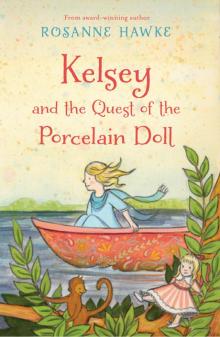 Kelsey and the Quest of the Porcelain Doll
Kelsey and the Quest of the Porcelain Doll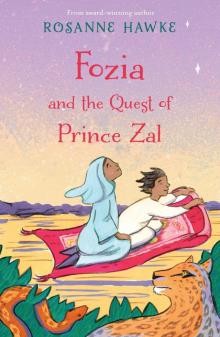 Fozia and the Quest of Prince Zal
Fozia and the Quest of Prince Zal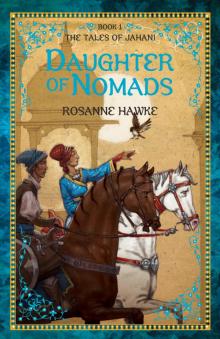 Daughter of Nomads
Daughter of Nomads The Truth About Peacock Blue
The Truth About Peacock Blue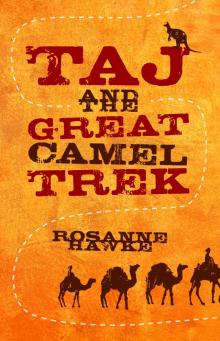 Taj and the Great Camel Trek
Taj and the Great Camel Trek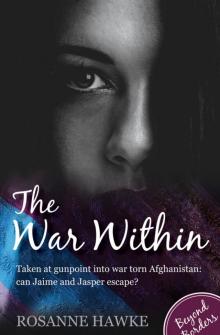 The War Within
The War Within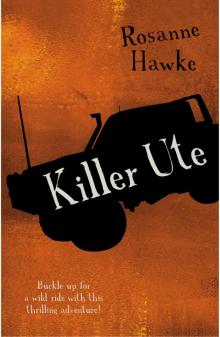 Killer Ute
Killer Ute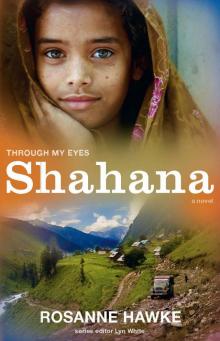 Shahana
Shahana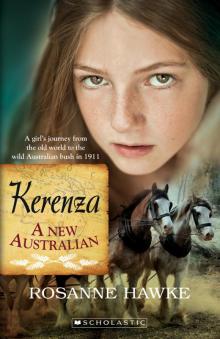 Kerenza: A New Australian
Kerenza: A New Australian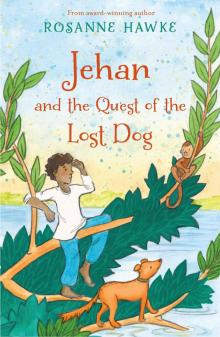 Jehan and the Quest of the Lost Dog
Jehan and the Quest of the Lost Dog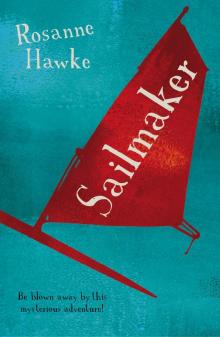 Sailmaker
Sailmaker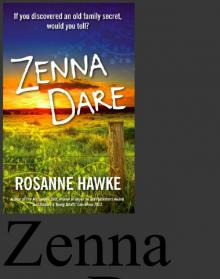 Zenna Dare
Zenna Dare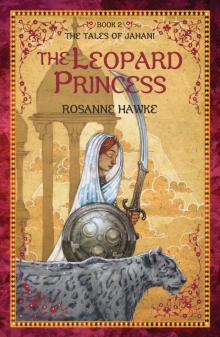 The Leopard Princess
The Leopard Princess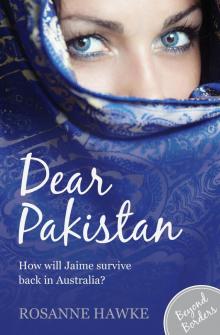 Dear Pakistan
Dear Pakistan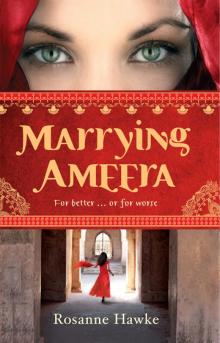 Marrying Ameera
Marrying Ameera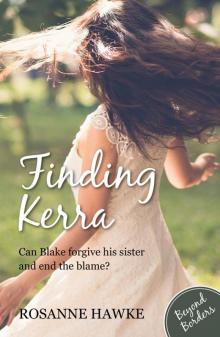 Finding Kerra
Finding Kerra Spirit of a Mountain Wolf
Spirit of a Mountain Wolf